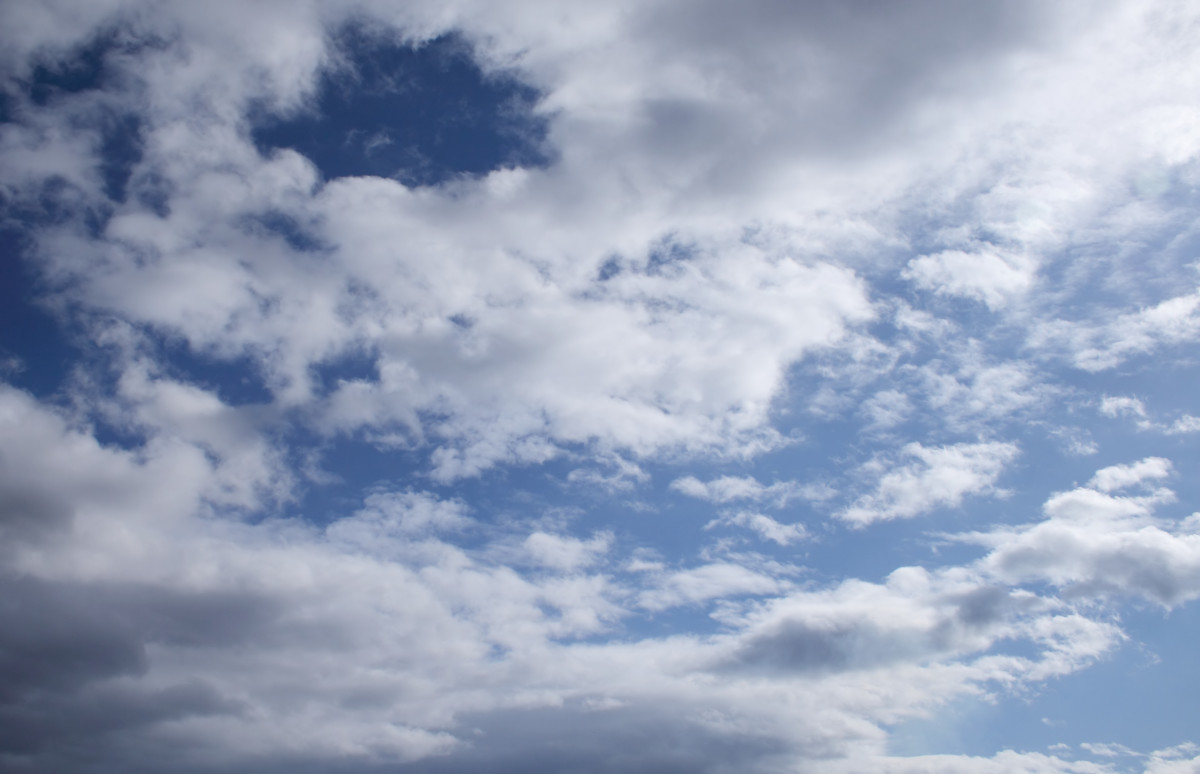Water to Wine: More Than a Miracle!
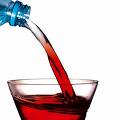
More Than a Miracle!
Recently I was asked to lead a women’s bible study on John Chapter 2. Oh, how I love the Holy Spirit and the insight He gives when we read His Word. The Lord is moving me to write what He showed me here as well, and I pray the Holy Spirit enlighten you and bless you to the very core, leading you to wanting MORE, praise God!

John 2:1-2 The Wedding Feast
All throughout the Word, the wedding feast is significant in regard to the kingdom of God. The Jewish wedding feast lasts for seven days (if the bride is a virgin) and three days (if the bride is a widow remarrying). Based on 2 Cor 11:2, the Bride of Christ is presented as a virgin (fully spotless, blameless, forgiven)! This wedding that took place in John 2 had been going on for three days. The first miracle Jesus performed not only happened on the third day (which is symbolic of his death, burial and resurrection), but the turning of water into wine is also symbolic of salvation.
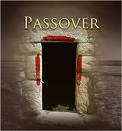

John 2:3-4 Appointed Time
Mary, the mother of Jesus, noticed that the wine was gone and immediately went to tell Jesus. It’s interesting to note Jesus’ response, “My hour has not yet come”. See, Jesus knew what would happen as soon as He revealed Himself. The “hour” of conspiracy to kill Him would begin, yet there was an appointed time for Him to fulfill His purpose.
Consider first WHY Jesus came. What did John the Baptist call Him? In John 1:29 & 36 John said, “Behold, the Lamb of God Who takes away the sin of the world!” Since Israel was enslaved in Egypt and God sent the final plague to force Pharaoh to set them free, the first official “Passover” was made manifest. God sent the angel of death over Egypt to claim the lives of every first-born male. Israelis were instructed to spread the blood of a sacrificed lamb on the doorposts of each house; this caused the angel of death to “pass over” that household. Ever since, Israel celebrates Passover, followed by a seven-day Feast of Unleavened Bread. Each year, a lamb is (was) sacrificed to carry over their sin throughout the coming year. Interestingly enough, the lamb is (was) also eaten during the Passover meal (Seder). During the Feast of Unleavened bread, no leaven is to be consumed. In the Bible, leaven represents sin. Both the bread and wine are to be unleavened, now symbolic of the sinless body and blood of the Lamb.
What does this have to do with Jesus’ statement to His mother? Surely, the sacrifice of the Lamb of God was appointed to take place at Passover. Consider that the “last supper” was indeed the Passover meal at which time Jesus spoke of the bread and wine representing His body and blood. He told them to “eat of His flesh and drink of His blood”. Do you see the alignment of “eating” the Passover lamb? It’s simply amazing that He not only was arrested that night, but had to go before the Jewish courts, Herod and Pilate, be flogged by the Roman soldiers, carry His cross to Calvary, suffer and die, and be placed in the tomb in time for the Jewish High Sabbath (the first day of the Feast of Unleavened Bread)! Believe it or not, Jesus was crucified on a Wednesday afternoon, Nisan 14 (Ex 12:6) and rose on the eve of the first day of the week (John 20:1), Nisan 17 (Jewish days are evening to evening) - three nights and three days later (Mat 12:40).
John 2:5 Just Do It
Even though Jesus responded to His mother in this way, Mary instructed the servants, “Whatever He says to you, do it.” This is important to us as followers or “bond-servants” of Christ. A miracle was about to take place, and in order for it to manifest, obedience was required. We’ll see the significance of this in just a few moments.
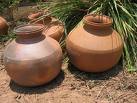
John 2:6 Sanctified Water Pots
“Now there were six stone waterpots set there for the Jewish custom of purification, containing twenty or thirty gallons each.”
What is the Jewish custom of purification? First of all, understand that this was a custom or ordinance implemented by Jewish Pharisees as part of the Law of Moses. They believed they had to ceremonially wash their hands several times a day, so as not to obtain spiritual contamination by the touching of anyone or anything “unclean”. So, this water was set apart or “sanctified” for this purpose…the purpose of cleansing.
Surely, Jesus chose this water for a reason…for a sign. Consider that you and I are like vessels of water. We are not only born of water (our mother’s womb), but 83% of our bodies are made up of water. Let’s think of Jesus’ purpose again. He came to cleanse us, to sanctify us, set us apart.
John 2:7 Filled to the BRIM
“Jesus said to them, ‘Fill the waterpots with water.’ And they filled them up to the brim.” Consider all the Jews at this wedding had been using this water for three days, so surely these pots of water were not full. So, let’s keep in mind these pots were now “filled to the brim”.

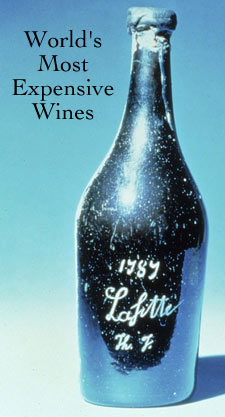
John 2:8-10 The GOOD WINE
“And He said to them, ‘Draw some out now, and take it to the headwaiter.’ And they took it to him. And when the headwaiter tasted the water which had become wine, and did not know where it came from (but the servants who had drawn the water knew), the headwaiter called the bridegroom, and said to him, ‘Every man serves the good wine first, and when men have drunk freely, then that which is poorer; you have kept the good wine until now.” Truly, the bridegroom received PRAISE instead of SHAME, for to run out of wine halfway through the wedding feast would be shameful.
Jesus not only spared the bridegroom from being shamed, but provided the BEST WINE when He could have just provided cheap wine. What was the difference? Some think the best wine was pure and undilluted grape juice, and that cheaper wine was dilluted with water. Some think the best wine was high quality and intoxicating, and thus the wedding guests wouldn't notice the cheaper wine so much after consuming the best wine. Was this wine able to intoxicate? It appears so, but I need to do further study on this. The word “wine” is simply translated “wine” in Greek, but per the commentary, it may be from the Hebrew word ya’yin; from an unused root meaning to effervesce; wine (as fermented); by implication intoxication; - banqueting, wine.
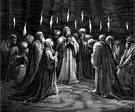
Wine symbolic of the Blood and the Spirit
Let’s go back to the Passover meal for a moment. Wine is served four times during this meal. We already covered the fact that leaven cannot be consumed in any form during the Passover and following Feast of Unleavened Bread, so this wine was "new wine" or grape juice. We read how Jesus compared the wine to His blood. Truly, when we understand what salvation is, it is through the sinless blood of the Lamb of God we are forgiven and sanctified, purified as a virgin Bride to the Bridegroom, Who is Jesus Christ. Likewise, Mat 9:17 uses new wine, representative of His blood, and wineskins, representative of our vessel: "Nor do people put new wine into old wineskins; otherwise the wineskins burst, and the wine pours out and the wineskins are ruined; but they put new wine into fresh wineskins, and both are preserved."
Jesus tells us in the John 3:5, “Truly, truly, I say to you, unless one is born of water [mother’s womb] and the Spirit, he cannot enter into the kingdom of God.” Now, let’s look at a comparison of the wine with the Spirit of God on the Day of Pentecost. In Acts 2 we read about the Holy Spirit arriving with a noise like a violent, rushing wind, and it filled the whole house where they were sitting, appearing as tongues of fire resting upon each of the disciples. They began to speak with new tongues as the Spirit gave them utterance and each spoke the gospel to the thousands of Jews present for this festival. In verse 13 we read that some Jews were mocking the disciples saying, “They are full of sweet wine”. Peter, knowing their thoughts, responded in verse 15 by saying, “These men are not drunk, as you suppose, for it is only the third hour of the day.”
Now, we see an alignment with the wine, the blood and the Spirit. The major difference between literal wine drunkenness and Spiritual infilling is that wine can cause a man to lose self-control, yet the Spirit brings self-control (Gal 5:23)! This is confirmed in Eph 5:18 “And do not get drunk with wine, for that is dissipation, but be filled with the Spirit”.
1 John 5:7-8 "For there are three that testify: the Spirit and the water and the blood; and the three are in agreement."
Now we can better understand Jesus' message in John Chapter 3. You must be born of water (your mother's womb) and the Holy Spirit by the shed blood and resurrection of the Lamb of God!

The Miracle of Salvation
Has Jesus Christ turned your water into wine? Have you been filled to the brim, filled to overflow by His Spirit? Do you now understand that the washing of water doesn’t spiritually cleanse you? Religious works (i.e. the washing of the hands) don’t cleanse you? Are you washed in the blood of the Lamb? Earlier we read that it takes obedience, “Do whatever He says”, in order for this miracle to take place in your life.
Rom 10:9 states, “If you confess with your mouth Jesus as Lord, and believe in your heart that God raised Him from the dead, you will be saved; for with the heart a person believes, resulting in righteousness, and with the mouth he confesses, resulting in salvation.”
Mat 15:18-20 confirms this truth: “But the things that proceed out of the mouth come from the heart, and those defile the man. For out of the heart come evil thoughts, murders, adulteries, fornications, thefts, false witness, slanders [do you see the 10 commandments referenced here?]. These are the things which defile the man; but to eat with unwashed hands does not defile the man.”

Water and Spirit-Baptism
Jesus tells us in Mark 16:16, “He who has believed and has been baptized shall be saved; but he who has disbelieved shall be condemned.”
Now, understanding that water is water, and it’s not the washing of hands that sanctifies us, neither does water baptism (the putting off of the filth of the flesh) in and of itself save us. 1 Pet 3:21 states, “baptism now saves you-- not the removal of dirt from the flesh, but an appeal to God for a good conscience-- through the resurrection of Jesus Christ”.
The Apostle Paul stated that John baptized with water unto repentance (Acts 19:3). Even John the Baptist told us this, then went on to say that Jesus baptizes with fire and the Holy Spirit (Mat 3:11; Luke 3:16)! Now, understand that Jesus never baptized anyone in water (John 4:2).
1 Cor 12:13 states, “For by one Spirit we were all baptized into one body, whether Jews or Greeks, whether slaves or free, and we were all made to drink of one Spirit.”
Acts 1:5 “John baptized with water, but you will be baptized with the Holy Spirit not many days from now."
Spirit-baptism is the total emersion in the Spirit, the sanctification by the blood of the Lamb, a dying to the old man (repentance) and a filling to the brim of His Spirit that brings new life in Christ Jesus (salvation). New wine in new wineskin! For more on baptism, I invite you to read my hub John and Jesus: About BAPTISM.

Are You Washed in the Blood of the Lamb?
If you haven’t received Jesus Christ as your Lord and Savior, know that no amount of water or good works will save you! He accepts you just as you are. You don’t need to “get cleaned up before taking a bath”! You can’t do it on your own!! He will cleanse you by His blood and will put His Spirit within you, sealing you as His Own until He comes again! Come to Jesus ~ now is the time.
To complete the study on John Chapter 2, I invite you to read my hub The LORD, Whose Name is JEALOUS!





